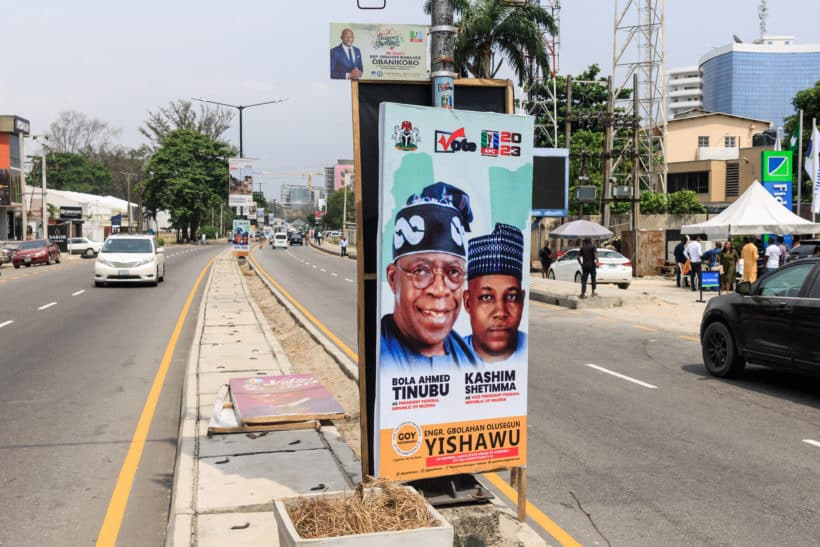
ABUJA, March 1 (Reuters) – Nigeria’s new president-elect, Bola Tinubu, on Wednesday defended the integrity of the national election that he won, and called on citizens to unite around him after a bitter dispute over results opposition parties have said are flawed.
The Independent National Electoral Commission (INEC) said Tinubugarnered 8.79 million votes in the weekend election, ahead of main opposition challenger Atiku Abubakar’s 6.98 million votes. Peter Obi, an outsider popular with younger and more educated urban voters, garnered 6.1 million votes.
A candidate can win a Nigerian election by getting more votes than their rivals, provided they get 25% of the vote in at least two-thirds of the 36 states and the federal capital Abuja, which Tinubu did.
“I am very happy I have been elected the president of the federal republic of Nigeria,” Tinubu said to cheers in Abuja. “This is a serious mandate. I hereby accept it.”
Nigeria’s election was meant to be its fairest and most open contest to date. But the electoral process encountered problems, owing to new technology that did not function well and seemed to overwhelm Nigeria’s notoriously inadequate communications network.
INEC had promised to upload results from each polling unit to its website in real time but most units were unable to do so immediately, undermining trust in the process.
Thousands of results have still to be uploaded.
Because of these failings, the main opposition parties of Atiku and Obi have rejected the results as fraudulent.
“I commend INEC for running a credible election no matter what anybody says,” Tinubu said. “The lapses that were reported, they were relatively few in number and were immaterial to affect the final outcome of the election.”
Tinubu now faces a long list of national problems, including Islamist insurgencies in the northeast, armed attacks, killings and kidnappings, conflict between livestock herders and farmers, cash, fuel and power shortages, and deeply entrenched corruption.
President Muhammadu Buhari, also from the All Progressives Congress (APC), congratulated his successor.
“Elected by the people, he is the best person for the job. I shall now work with him and his team to ensure an orderly handover of power,” he said in a statement.
Uploading results from polling stations live to the web is not a legal requirement, but it meant results had to be collated manually inside ward and local government counting centres as in previous polls, reneging on a policy that was meant to improve transparency.
Observer missions have criticised this as the result of poor planning.
As Lagos governor, Tinubu won praise for partially fixing some of the cities problems, including reducing violent crime, waste collection and traffic.
The 70-year-old has, however, sometimes appeared frail in public, slurring his speech, answering questions with platitudes, and skipping several campaign events, leaving some to doubt how effective or dynamic he will be as leader.
(Reporting by Tim Cocks; Editing by Raju Gopalakrishnan and Gerry Doyle)

